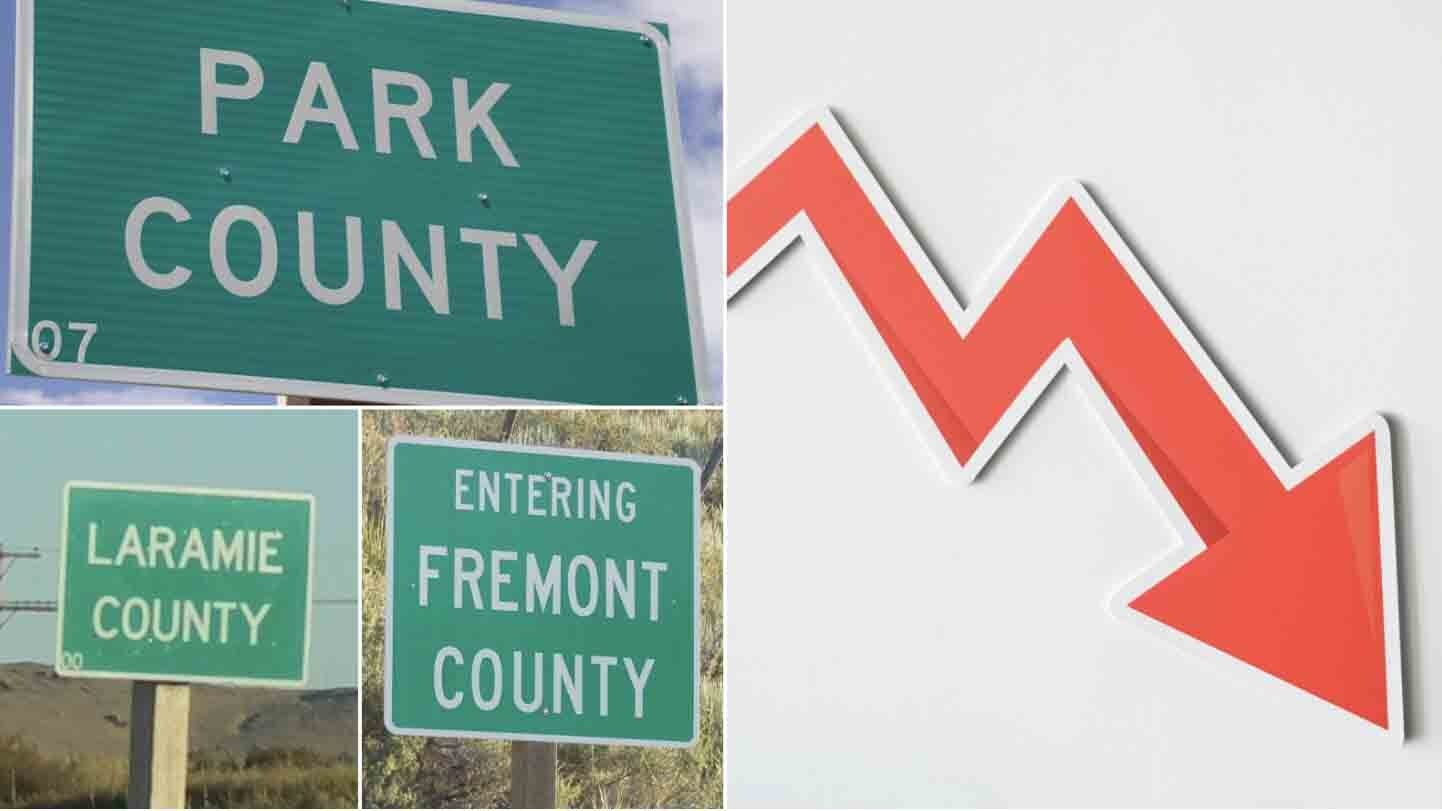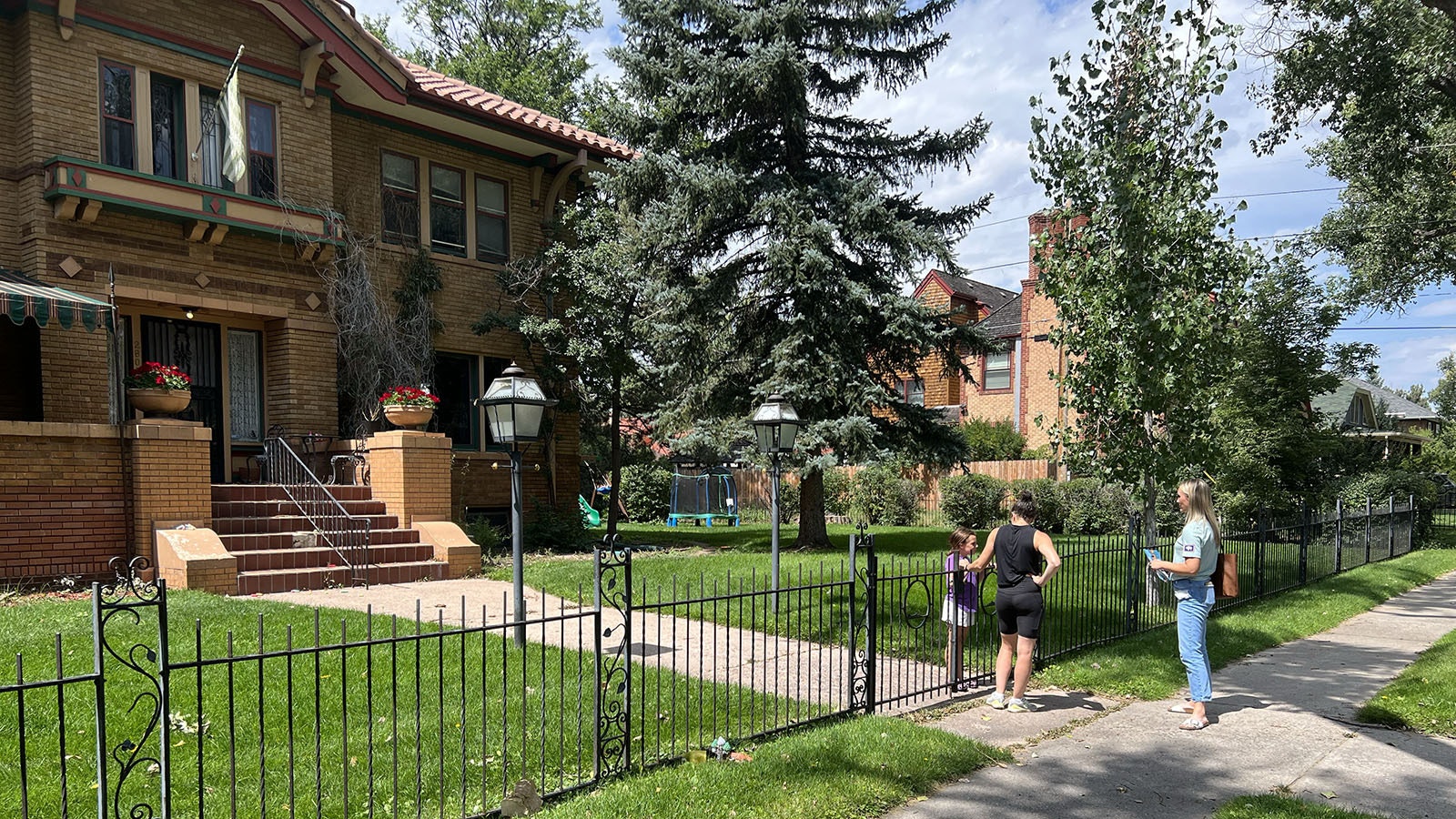Most of Wyoming’s counties are experiencing budget difficulties because of declines in tax revenue caused by the coronavirus pandemic, but the extent of the impact varies from county to county, according to officials.
Jeremiah Rieman, executive director for the Wyoming County Commissioners Association, said different counties are finding different ways to deal with the sales tax income slump that came with the economic slowdown caused by the pandemic.
“The impacts really show diversity,” he said. “In some instances counties are able to balance the budget. Others are taking cuts of varying degree.”
Fremont County
As an example, Fremont County commissioners cut the county’s budget by $4.5 million, said commission Chairman Travis Becker.
“No department has been spared,” he said. “All of our social services are not funded this year.”
Among other things, the county reduced its contribution to its libraries and reduced funding to senior service centers, Becker said.
“And not a single dime of general fund money is able to go to the museums,” he said. “They’ll be trying to fund programs through self-generated dollars.”
Becker said the cuts will have a direct impact on the county’s residents, but they had to be made so the county could maintain funding for mandated services such as the county clerk’s office and sheriff’s department.
“People think we can cut somewhere else, but we can’t cut the mandated essential stuff completely,” he said. “Believe it or not, I’ve had people say we should not give the sheriff’s department so much money, but I’m not going to do that. I have to do what the state mandates, and I can’t cut some things completely.”
Park County
In Park County, Joe Tilden, chairman of the county commission, said officials expect cash carryover from the current fiscal year to total around $2 million, covering most of the $2.2 million shortfall predicted with tax income declines.
Commissioners will also urge all agencies in the coming year to avoid unnecessary expenses, and are proposing a fifth penny sales tax.
If approved by voters, the extra 1% sales tax would bring in $3 million to $3.5 million annually.
“Now, what we hope to do with that is use a portion of it for general fund and it’ll put us in a position where we can prioritize things in the future,” he said. “So for the foreseeable future, five to six years down the road, we should be in pretty good shape – as long as we can keep our expenses under control, which we’ve learned how to do, and we’re doing a good job. You know, our expenses are coming in less than inflation the last ten years, that’s big.”
Laramie County
Laramie County commissioners told county departments to cut their budgets by 20% more than one month ago, said commission Chairman Gunnar Malm.
“We’re able to have a balanced budget with those reductions in costs and can put money into reserves, which are pretty healthy due to years previously not spending oil and gas money and banking it,” he said. “(The county) will have 20 million in reserves after we pay for the sixth penny projects.”
In addition, none of the county’s employees have seen their hours cut or have lost their jobs, Malm said.
The county expects a financial impact from the cancellation of Cheyenne Frontier Days, but the extent of that impact is not yet known, Malm said.
Rieman said bigger concerns are looming for all counties with anticipated drops in property tax income.
“The big thing we’re all bracing for is the reverberation into the next fiscal year where we’ll begin to see impacts on property taxes,” he said. “This is not going be a short cycle. It will have impacts long term, and we don’t quite understand what that will look like.”
Shortages faced by the state government may also force cuts in assistance for counties, Malm said.
“There’s always the looming question of what the Legislature will do with money for towns and counties and what that could do for our bottom line if that was reduced in any way,” he said.
Rieman said impacts in the future will depend largely how long the economy will be affected by the coronavirus.
“The real concern is the length of this pandemic, whether that’s another wave or continuing at the steady pace that prohibits us from opening the economy,” he said. “If this pandemic continues to linger, it’s going to put additional pressure on the government to continue services as well as pressure on the state and federal government to provide some sense of relief here, so we don’t have a complete collapse of our economy.”





